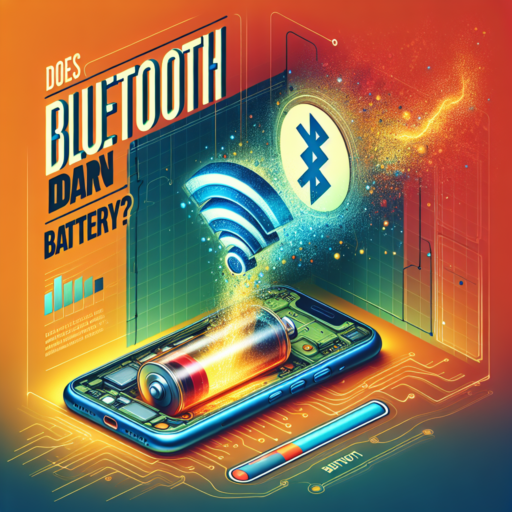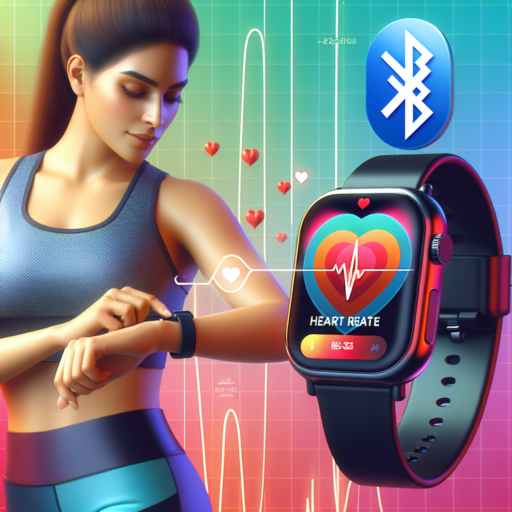Does Bluetooth drain your phone battery?
Many people frequently wonder whether using Bluetooth on their smartphones impacts the battery life. Does Bluetooth drain your phone battery? The short answer is, yes, but the extent to which it affects your battery life can vary based on how you use Bluetooth and the specific devices you connect to. In essence, any feature on your phone that uses power will deplete the battery, and Bluetooth is no exception.
Understanding Bluetooth Connectivity
Bluetooth technology is designed to be energy-efficient, especially with the introduction of Bluetooth Low Energy (BLE) in modern devices. BLE is intended for periodic data transfers and uses significantly less power than the classic Bluetooth. Nevertheless, if your device doesn’t support BLE, or you’re using features that require constant data transmission (such as streaming audio), your battery may drain more quickly.
Factors Affecting Battery Drain
- Device type: The type of device you’re connecting to can influence battery drainage. For instance, streaming music to a Bluetooth speaker consumes more power than connecting to a smartwatch.
- Distance: The further your phone is from the connected device, the more power it needs to maintain the connection.
- Bluetooth version: Older Bluetooth versions are less energy-efficient compared to the newer protocols.
Therefore, while Bluetooth does consume battery power, various factors influence how significant this impact is. By understanding these elements, users can optimize their device’s battery life while still enjoying the benefits of wireless connectivity.
No se han encontrado productos.
Does having Bluetooth off save battery?
Turning off Bluetooth can indeed save battery life on most modern devices, including smartphones, laptops, and tablets. This is because when Bluetooth is active, it constantly searches for nearby devices to connect with, which can consume a significant amount of power. Turning Bluetooth off reduces this search mode’s demand on your device’s battery, leading to improved battery longevity.
However, the amount of battery life saved by disabling Bluetooth may vary depending on your device’s make and model, as well as how it manages Bluetooth connectivity. For instance, newer devices often have more efficient Bluetooth hardware and software optimizations that minimize battery usage when not actively connected to another device. Despite these advancements, turning Bluetooth off when not in use is a simple yet effective way to conserve battery life.
Considerations for Managing Bluetooth to Save Battery
- Disable Bluetooth when not in use, especially if you do not need it for connecting to peripherals like wireless headphones or smartwatches.
- Take advantage of settings that minimize Bluetooth scanning or improve battery optimization while keeping Bluetooth enabled.
- Regularly review and disconnect from unused Bluetooth connections to prevent your device from using extra battery power to maintain these connections.
Is it okay to leave Bluetooth on all the time?
Leaving Bluetooth on constantly is a practice many of us are guilty of, often for the sake of convenience. However, it’s worth considering the implications of this habit. The primary concerns revolve around battery life, security, and potential health impacts. Understanding the nuances of these aspects can help us make informed decisions about our Bluetooth usage.
Battery Life Considerations
One common question is how leaving Bluetooth on affects your device’s battery life. Modern smartphones and devices are designed to manage their power usage efficiently, and Bluetooth technology, especially the latest versions, has become more power-efficient. While keeping Bluetooth on all the time does consume power, the impact on battery life might be less significant than expected. However, for those looking to maximize their device’s battery endurance, turning off Bluetooth when not in use can contribute to a slightly longer battery life.
Security Implications
The security risks associated with continually activated Bluetooth cannot be overlooked. When your Bluetooth is always on, it potentially exposes your device to unauthorized connections or data breaches. Cyber threats like BlueBorne, a series of vulnerabilities that allow attackers to infiltrate devices via Bluetooth, highlight the importance of being cautious. Regularly updating your device’s software and turning off Bluetooth in public spaces can mitigate these risks.
Does Bluetooth drain more battery than phone speaker?
Exploring the impact of Bluetooth usage on smartphone battery life compared to using the phone’s built-in speaker is a topic of significant interest among tech users today. With the rise in wireless technology, understanding how these features affect our devices’ battery longevity is more relevant than ever. Bluetooth, as a wireless communication technology, enables the connection between devices without the use of cords, offering both convenience and mobility. However, the question arises: Does Bluetooth drain more battery than using the phone speaker?
The energy consumption of using Bluetooth versus the phone’s speaker primarily depends on various factors, including the version of Bluetooth technology, the distance between connected devices, and the volume level when using the phone’s speaker. Modern smartphones are equipped with advanced Bluetooth technologies like Bluetooth 4.0 and above, designed to be more energy-efficient than their predecessors. These newer versions include features such as Bluetooth Low Energy (BLE), which significantly reduces power usage during idle periods.
Furthermore, the amount of battery draining when using Bluetooth as opposed to the phone speaker can also vary based on the specific use case. For instance, streaming audio to a Bluetooth headset may consume different amounts of power compared to blasting music through the phone’s built-in speaker at high volume. Ultimately, the efficiency and energy usage are influenced by the user’s habits and the quality of the connected devices.




